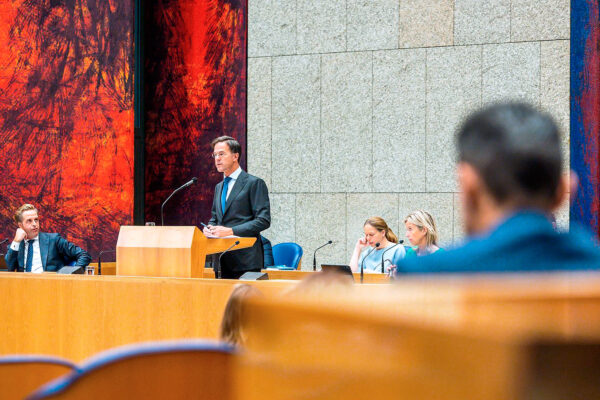
The big story in this year’s election in the Netherlands is that all parties, including the ruling VVD (of which I am a member), have moved to the left. As a result, there is broad consensus for deficit spending, far-reaching climate legislation, closer defense integration in Europe, more central government involvement in housing and raising corporate tax.
Not all foreign media have noticed. Many are still obsessed with yesterday’s story: the far right.
Old news
This may have something to do with the anti-immigrant and Euroskeptic right not making inroads in other countries until recently, such as the Alternative for Germany and Vox (Voice) in Spain.
Donald Trump’s unexpected (including by me!) 2016 election victory also traumatized left-leaning journalists, who may be overcompensating by giving the populist right too much attention.
In the Netherlands, we’ve been dealing with this for twenty years. Many far-right parties have come and gone, and few amounted to much. The exception is Geert Wilders, whose Freedom Party has been in parliament for fifteen years. But we’ve acclimatized to his divisive rhetoric and outrageous proposals, the latest of which is to strip dual citizens of their right to vote. That won’t happen.
Mainstream parties, in particular the Christian Democrats, Labor, Socialists and VVD, have taken some of the sting out of the far right’s appeal by adopting stricter immigration and integration policies.
This baffles politically-correct observers. The Financial Times calls Rutte a bigot for declaring the Netherlands’ liberal values “nonnegotiable”.
Four years ago, The New York Times incredibly compared Rutte, a live-and-let-live, pro-free-trade liberal, with the reactionary and isolationist Trump for admonishing immigrants who “abuse our [Dutch] freedom.”
This year’s attempt, by the Dutch-born Thomas Erdbrink, is much better, although it still describes Wilders as a “frontrunner to lead a new government,” which is ridiculous. No other major party would even join Wilders in a coalition, much less make him prime minister.
Politico believes Wilders is making a “comeback” even though he is projected to defend his Freedom Party’s twenty seats.
An alarmist opinion column in Business Insider claims the far right is “rallying support,” but that isn’t borne out by the figures. Wilders’ popularity is stable. Forum for Democracy, a new party on the far right, is down from 16 percent support in 2019 to 2-3 percent in recent surveys.
The Daily Express simply gives the wrong figures when it claims Wilders is projected to go up “from just five seats in parliament to a whopping twenty.” His party, in fact, has five out of 75 seats in the upper chamber and twenty out of 150 in the lower house.
Euronews is under the impression that this election is all about the Netherlands’ post-Brexit role in the EU when Rutte and other party leaders have been criticized for barely debating their visions for the EU at all! (To be fair, Euronews has better stories about the role climate and housing play in the campaign. It’s probably not a coincidence that those stories are written by a Dutch journalist.)
Better takes
At best, there are desperate attempts to squeeze something newsworthy out of an uneventful election campaign during which the polls have been static.
If you want to tell a story, make it about why Rutte is cruising to reelection after ten years in power and multiple crises, including the child benefits scandal in which some 26,000 parents were wrongly accused of fraud and forced to pay back tens of thousands of euros in benefits. Many were financially ruined.
The Guardian does just that, calling Rutte a “savvy operator with a talent for building and maintaining unlikely alliances.”
Tagesschau, the German television program, headlines its report with the Merkelian slogan “No Experiments” and understands that many Dutch voters value Rutte’s dependability.
Ben Coates, a British journalist who lives in the Netherlands, and who wrote the delightful Why the Dutch Are Different (2015), knows Rutte’s wariness of soaring rhetoric is not a weakness but a strength in Dutch politics:
In [the] Anglo-Saxon world in particular, we’ve become somewhat accustomed to the idea that our leaders should be bombastic or at least impassioned, giving stirring speeches and pledging to deliver a brighter tomorrow. Dutch politics, however, doesn’t really work like that.
Simon Kuper, a British journalist who grew up in the Netherlands, agrees:
Rutte isn’t a brilliant manager, but his voters like that he presents himself as only a manager. He doesn’t want to take the Dutch anywhere in particular, but then they don’t want to be taken. […] In a country that set a world record with 26 years of unbroken economic growth through 2007, despite working some of the shortest hours on Earth, who needs ideals?
I argue much the same in EUobserver. Critics who lament the Dutch tendency to woolly compromises should be careful what they wish for. Muddling through has served the Netherlands well.
